The BBC World Service has launched the Arabic edition of its award-winning educational programme, ‘Dars,’ (lesson) in the Middle East and North Africa.
Designed to support children who cannot access formal education, Dars Arabic aims to provide learning resources for the region’s youth, particularly those displaced by conflict in Sudan, Yemen, and Gaza.
The idea for Dars originated from an intent to help children in Afghanistan, especially girls who were banned from attending school. Building on that mission, the programme has expanded to reach children across the Middle East and North Africa who face barriers to education due to conflict, displacement, or limited resources.
Dars Arabic incorporates content from BBC Education in subjects such as Maths, Science, and Geography, along with English lessons from BBC Learning English.
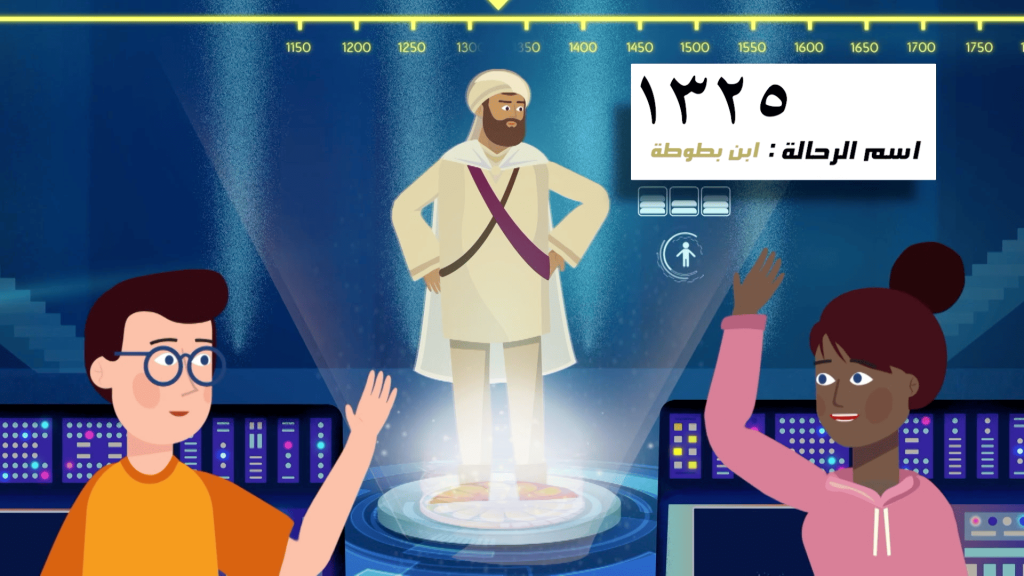
The programme also features inspirational stories, positive news segments, and mental health lessons created in consultation with conflict psychologists. These lessons address coping with bereavement, displacement, stress management, and resilience.
It is broadcast weekly on BBC News Arabic TV, digital platforms such as youtube and instagram, and radio services in Gaza and Syria. It is also available internationally via the BBC World Service’s 41 language services and YouTube.
During the event, Georgina Pearce, Senior Producer of Dars, told Egyptian Streets about the programme’s efforts to bridge the digital divide. Acknowledging that many children in conflict zones may not have consistent internet access, Pearce highlighted the importance of multi-platform availability.
“We know access is a challenge, so our goal is to be everywhere we can—on television, YouTube, Instagram, and soon, BBC Arabic’s WhatsApp channel,” she explained. “We also broadcast via lifeline radio services in Gaza and Syria, and we’re exploring partnerships with charities and organizations to screen the programme in refugee camps.”
Mental health education is a key component of Dars Arabic.
Pearce emphasized that the programme was developed in collaboration with experts in conflict-zone psychology to ensure it effectively addresses children’s emotional well-being. “We worked with psychologists who specialize in conflict zones to create these lessons,” she explained.
The first five episodes each begin with a mental health lesson.
“We know that a major barrier to learning is unaddressed mental health concerns. That’s why we prioritized lessons on understanding emotions, coping with displacement, dealing with bereavement, managing stress, and finding hope. You can’t begin to learn until your mental health is looked after,” she noted.
Additionally, Dars Arabic is designed to accommodate diverse educational needs across the region.
“Our core audience is 11 to 16-year-olds, but we hope younger children can also benefit,” Pearce said. The team has tailored content to align with familiar learning methods while maintaining broad accessibility. “We want to ensure that the countries needing it most receive adaptations that fit their learning styles while also making the content valuable for children across the region.”
BBC News Arabic correspondents Hanan Razek and Yasmine Abukhadra will present the English lessons, while the broader team of young presenters from across the region will host the programme from the BBC Bureau in Cairo.
The launch event, on 10 February in Cairo, featured discussions with Sudanese Minister of Education Dr. Ahmed Khalifa, Sahar Al Jobury, Chief of United Nations Relief and Works Agency for Palestine Refugees Representative Office in Cairo, and Esraa Ali, Founder of the Olive Tree Grandchildren initiative.
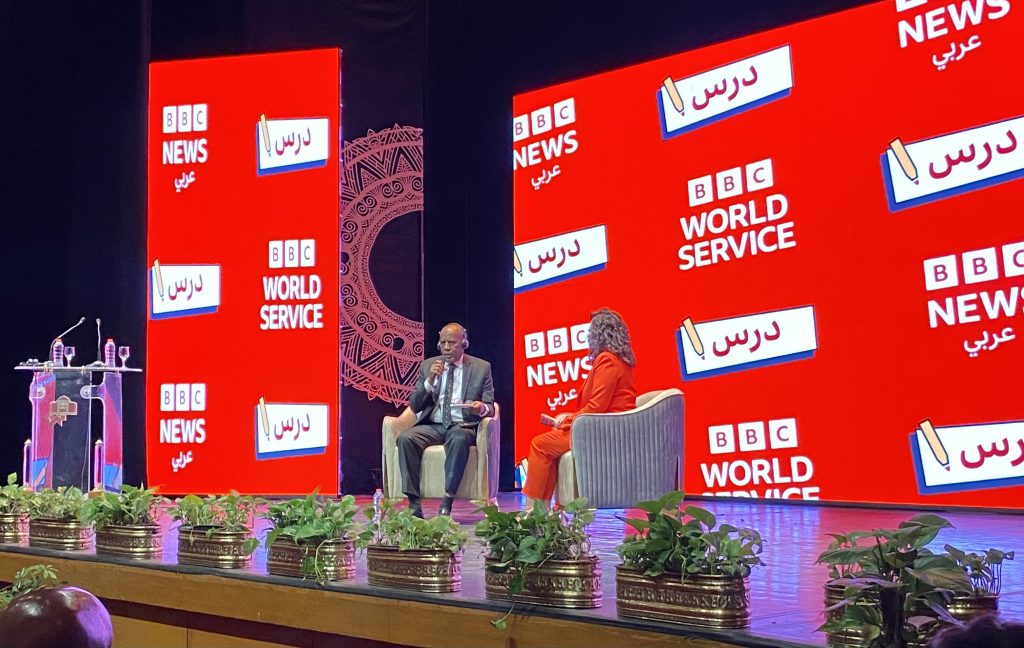
The Olive Tree Grandchildren Initiative is a grassroots organization supporting children from Gaza in Cairo, providing education and therapy to help them heal from war trauma.
During the discussions, speakers highlighted the urgent need for educational initiatives like Dars Arabic in conflict-affected regions, especially at this current period.
Sudan’s Minister of Education, Ahmed Khalifa, highlighted the devastating impact of conflict on the country’s education sector, stating that 70 percent of Sudan’s schools have been destroyed.
Esraa Ali, founder of the Olive Tree Grandchildren initiative, spoke about the organization’s efforts in providing support and education to children. “It’s a grassroots initiative run entirely by volunteers. Since launching in May 2024, we have reached over 900 students,” she said.
Ali added that the initiative offers art therapy, group therapy, Arabic theatre, and educational programmes to help children cope and continue learning despite challenging circumstances.
New episodes of Dars Arabic air Sundays at 05:30 GMT (07:30 EET) and are repeated throughout the week on BBC News Arabic TV, digital platforms, and lifeline radio services.
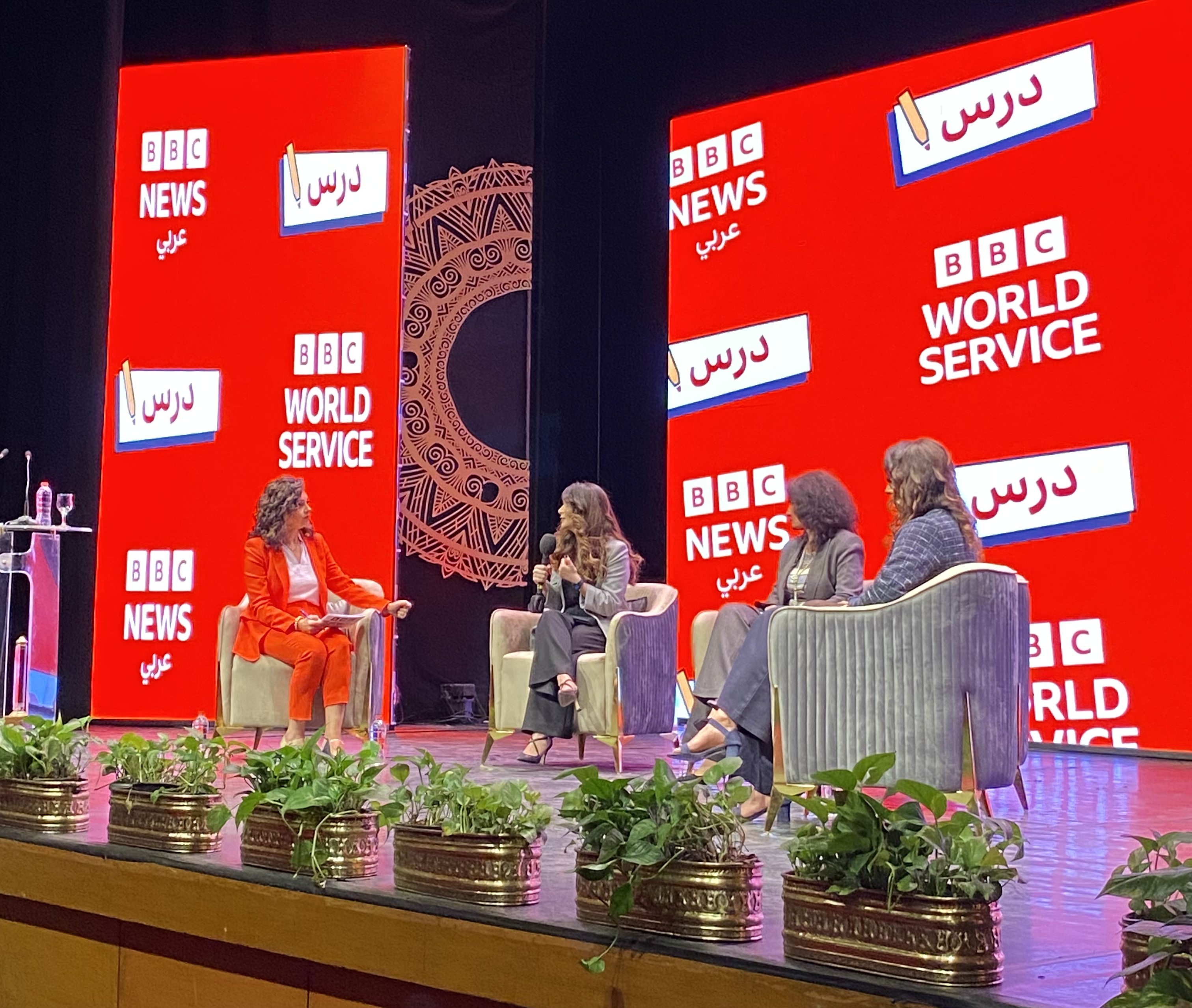



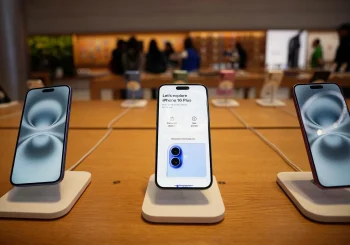
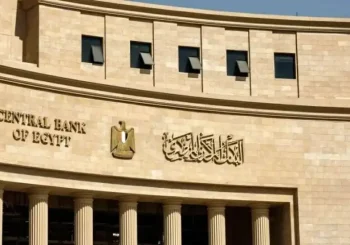
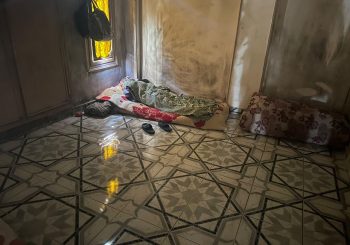
Comments (0)